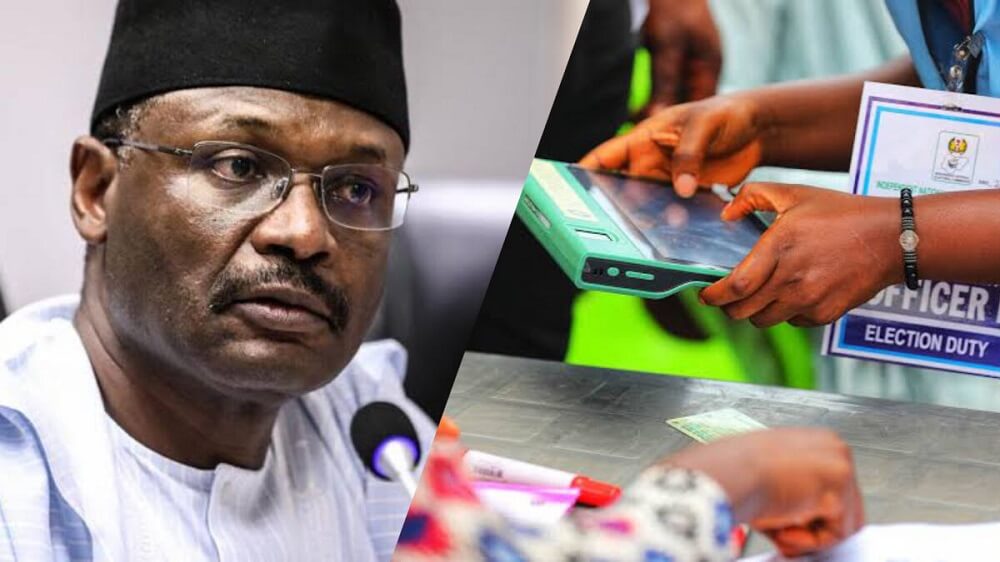IReV: Senate Wants INEC Compelled To Transmit 2027 Election Results From Polling Units, Mulls Ammendment To Electoral Act
After the presidential election petition tribunal recently ruled that electronic transmission of results was not mandatory provision of the Electoral Act, as amended in 2022, the Senate has called for amendment of the electoral act to remove ambiguity in it.
Although the Independence National Electoral Commission (INEC) had advertised the Bimodal Voter Accreditation System (BVAS) and the INEC Results Viewing Portal (IReV) as key components of Nigeria’s electoral system ahead of the 2023 general election, the electoral umpire would after the polls deny that the Electoral Act makes electronic transmission of results to the IReV portal compulsory.
Advertisement
The main opposition candidates, Atiku Abubakar of the People’s Democratic Party (PDP) and Peter Obi of the Labour Party (LP), had based their petitions calling for cancellation of the polls on INEC’s failure to transmit results to the IReV portal in real time, among others.
INEC was accused of technically manipulating the presidential election results in favour of the winner, President Bola Tinubu, by failing to conduct the election in accordance with the Electoral Act, among other accusations.
The Nigerian Senate now wants the Electoral Act 2022 amended to ensure mandatory transmission of election results.
The upper legislative chamber is also calling for diaspora voting in future elections and unbundling of INEC for efficiency.
Advertisement
This was contained in the communique issued by the Senate at the end of a two-day retreat organised for senators by the National Institute for Legislative and Democratic Studies (NILDS) in Ikot Ekpene, Akwa Ibom State.
It read in part, “INEC should be unbundled to improve its efficiency and effectiveness in the preparation and conduct of elections.
“Relating to the use of technology in elections, there is the need to remove the ambiguity evident in Section 64 of the EA22.
“There is also the need to make electronic transmission of results mandatory from the next general election in 2027.
“Uploading of polling unit-level results and result sheets used at different levels of result collation should also be mandatory.
Advertisement
“INEC should introduce diaspora voting, at least for presidential elections, to enable citizens to vote, especially those on essential service abroad, such as military, paramilitary, and other security personnel abroad, embassy staff, and other citizens.
“Relating to political parties, the Electoral Act should stipulate sanctions for failure to submit the register of party members not later than 30 days before the date of party primaries, congresses, or conventions which the political parties have observed in the breach in the 2023 elections without penalty.”
Meanwhile, former chairman of INEC, Professor Attahiru Jega, who also spoke at the event, alleged that the 2023 polls were manipulated.
Jega spoke on the topic “Electoral Reform and Democratic Consolidation in Nigeria: Review of 2022 Electoral Act (areas for further legislative actions).”
“We have seen, in 2023 elections, the damaging effect of how people in the corridors of power get their client/partisan nominees appointed, without being thoroughly screened, and then they are influenced to compromise the integrity of elections,” he said.
Jega also argued that electronic transmission of election results from polling units should be made compulsory.
Advertisement
He argued that all election cases should be resolved by the courts before the swearing-in of the winners.
Jega added, “Review the process of appointments into INEC, specifically to divest/minimise the involvement of the president in the appointment of Chairman and National Commissioners of INEC, to free the commission from the damaging negative perception of “he who pays the piper dictates the tune.”
“The applicants/nominees for these appointments should be subjected to public scrutiny with regards to knowledge, skills, good character, and non-partisanship. Guidelines should be provided for submitting petitions against any nominee during this process.”



